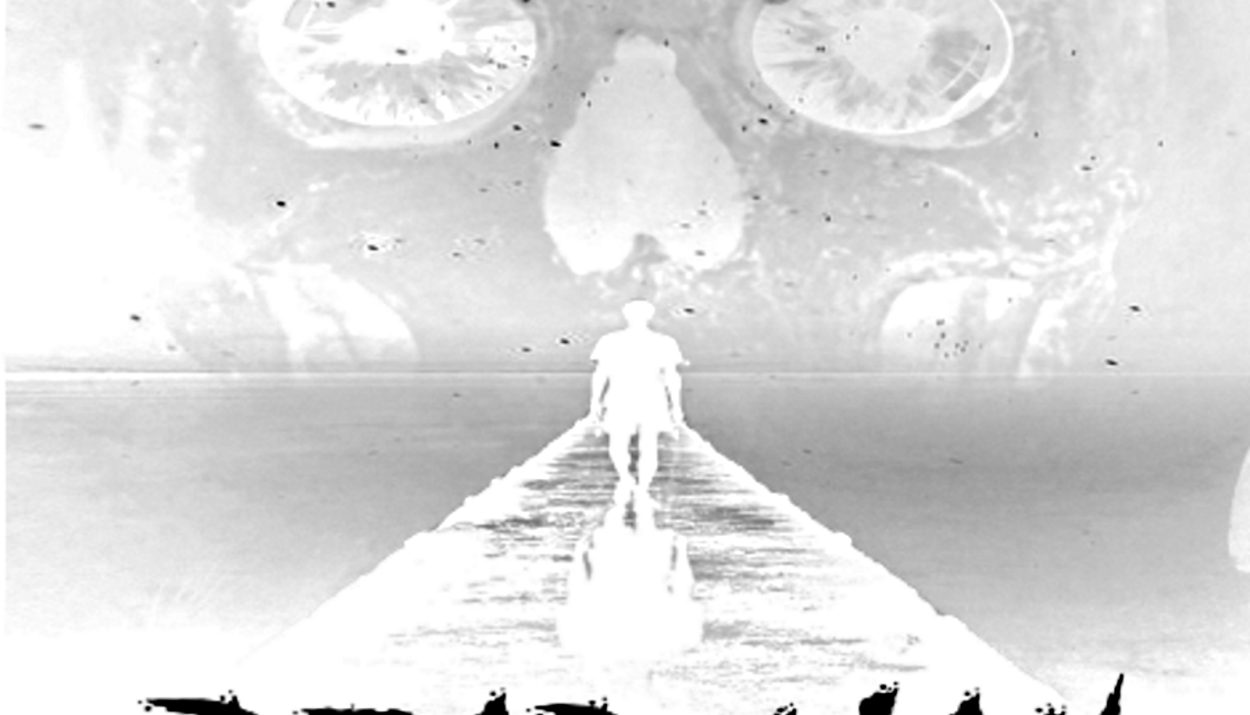In an era where rock often struggles to balance innovation with authenticity, Zach Adams arrives as a refreshing force of artistic daring. With the release of “Dead Man Walking” on August 1, 2025, via Splitting Adams Entertainment, they steps boldly into the modern rock landscape—not only as musicians but as storytellers who blurs the boundaries between sound and literature. This debut album is not merely a collection of songs; it is an immersive sonic companion to Adams’ horror/fantasy novel Dead Man Walking: Narrator’s Cut. Together, the novel and the record form a unified narrative, delivering a haunting yet exhilarating exploration of fear, mortality, and transformation.
For a self-produced debut, the scope of “Dead Man Walking” is astonishing. Adams layers alternative and progressive rock foundations with sprawling atmospherics, intricate arrangements, and bold thematic vision. The album’s production is meticulous—every crash of percussion, every shimmering guitar chord, and every swell of synth feels intentional, crafted to deepen the listener’s immersion in this eerie, otherworldly universe.
The journey begins with “Dead Man Walking – Final MIX”, a brooding opener that sets the tone like the first page of a gothic novel. The vocals here are haunting and resonant, establishing Adams as a commanding narrator of his own twisted fable. Distorted guitars weave with ambient textures, evoking both dread and curiosity.
“…When Wishing Still Helped One” follows, a track tinged with nostalgia and melancholy. Its instrumentation balances delicate melodies with heavier bursts of sound, mirroring the push and pull between innocence and loss. Adams’ vocal delivery is plaintive yet powerful, pulling listeners into the emotional undercurrent of yearning for a simpler time.
“Drown” turns the atmosphere darker, exploring suffocation and despair with crashing drums and deep, churning bass. The performance here feels visceral—vocals nearly gasping for air amidst the waves of instrumentation.
On “They Want You to Be Afraid!”, Adams channels urgency and confrontation. The vocals adopt a sharper edge, almost theatrical in their delivery, while jagged riffs and relentless rhythms drive home the paranoia and societal control suggested in the title.
“Gelatin Skeleton” introduces a surreal, almost playful grotesquerie. The track thrives on quirky guitar lines and shifting time signatures, highlighting Adams’ progressive rock leanings. Vocals here stretch into more experimental territory, blurring the line between sinister and satirical.
With “Petrichorus,” the mood shifts again. This piece is atmospheric and textural, evoking the earthy, rain-soaked scent its title suggests. Layers of guitars and synth create a meditative soundscape, and Adams’ restrained, almost whispered vocals lend the song an ethereal quality.
“Becoming Hollow (Am I?)” strikes at existential dread. Its instrumentation feels skeletal and tense, with silence and space used as instruments in themselves. Adams’ vocal delivery is raw, intimate, and questioning, as if unraveling in real time.
The stakes rise on “The House Always Wins,” where pounding rhythms and sharp riffs build a sonic casino of doom. Vocals carry a sneer here, mocking the inevitability of fate.
“The Last Light in the Universe” takes a more expansive approach, a ballad-like moment that stretches across a cosmic canvas. Adams’ voice is luminous and aching, backed by swelling guitars and synths that mimic the fading glow of stars. It’s one of the album’s most cinematic tracks.
The two-part epic “Apocalypsis, Pt. 1” and “Apocalypsis, Pt. 2” form the heart of the record’s narrative climax. Part 1 builds tension with layered atmospherics and steady rhythms, while Part 2 explodes into chaos and grandeur, delivering thunderous guitars, soaring solos, and some of Adams’ most impassioned vocals. Together, they embody collapse and catharsis.
Closing with “Phantom Love – Final MIX,” Adams ends on a spectral note. Ethereal melodies intertwine with mournful vocals, leaving listeners in a state of reflection. It’s a haunting finale that lingers long after the music fades, like the last ghost of a departed soul.
Adams’ vocal performance throughout the album is riveting. They inhabit characters, narrates inner monologues, and unleashes raw emotion. Their range spans from whispered vulnerability to anguished howls, giving each track its distinct personality. This theatricality never feels forced; instead, it underscores the album’s narrative ambition.
The instrumentation and arrangements demonstrate Adams’ mastery of mood. Shimmering guitar lines, jagged riffs, resonant bass tones, pounding drums, and eerie synth textures all interplay to craft soundscapes as layered as the novel that inspired them. The production is polished without losing grit, a delicate balance that allows the record to feel cinematic while staying grounded in rock’s visceral energy.
Zach Adams is not content to release just an album—they have built a world. ‘Dead Man Walking” is an introduction and a statement of intent, positioning them as an emerging artist unafraid to merge genres, mediums, and emotions into something entirely theirs. With this debut, Adams has created a record that doesn’t just invite us to listen, but demands us to experience.
For fans of ambitious rock albums that tell stories—think The Wall or Metropolis Pt. 2: Scenes from a Memory—Dead Man Walking deserves your full attention. Zach Adams is an artist to watch, and this debut ensures his voice won’t just be heard, but felt.
Listen to the “Dead Man Walking” album on Spotify
Follow Zach Adam here for more for more information






